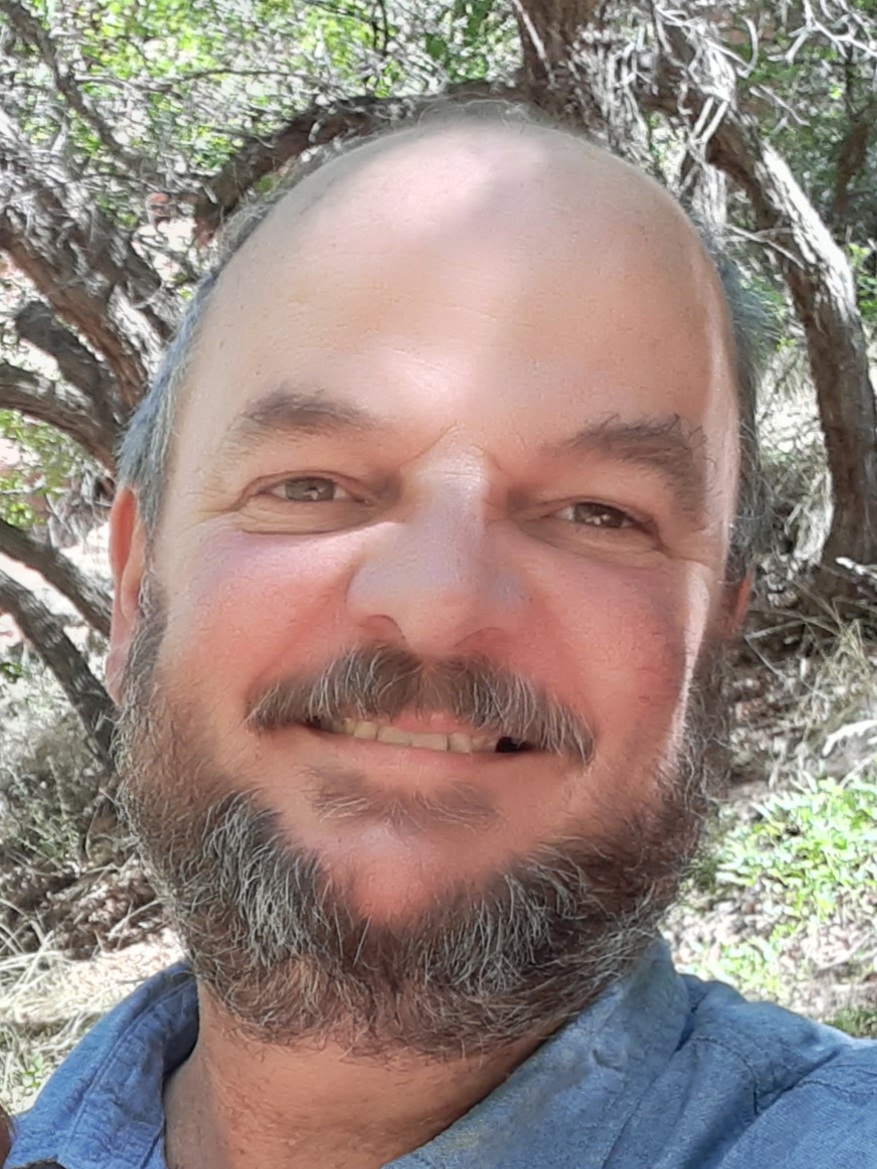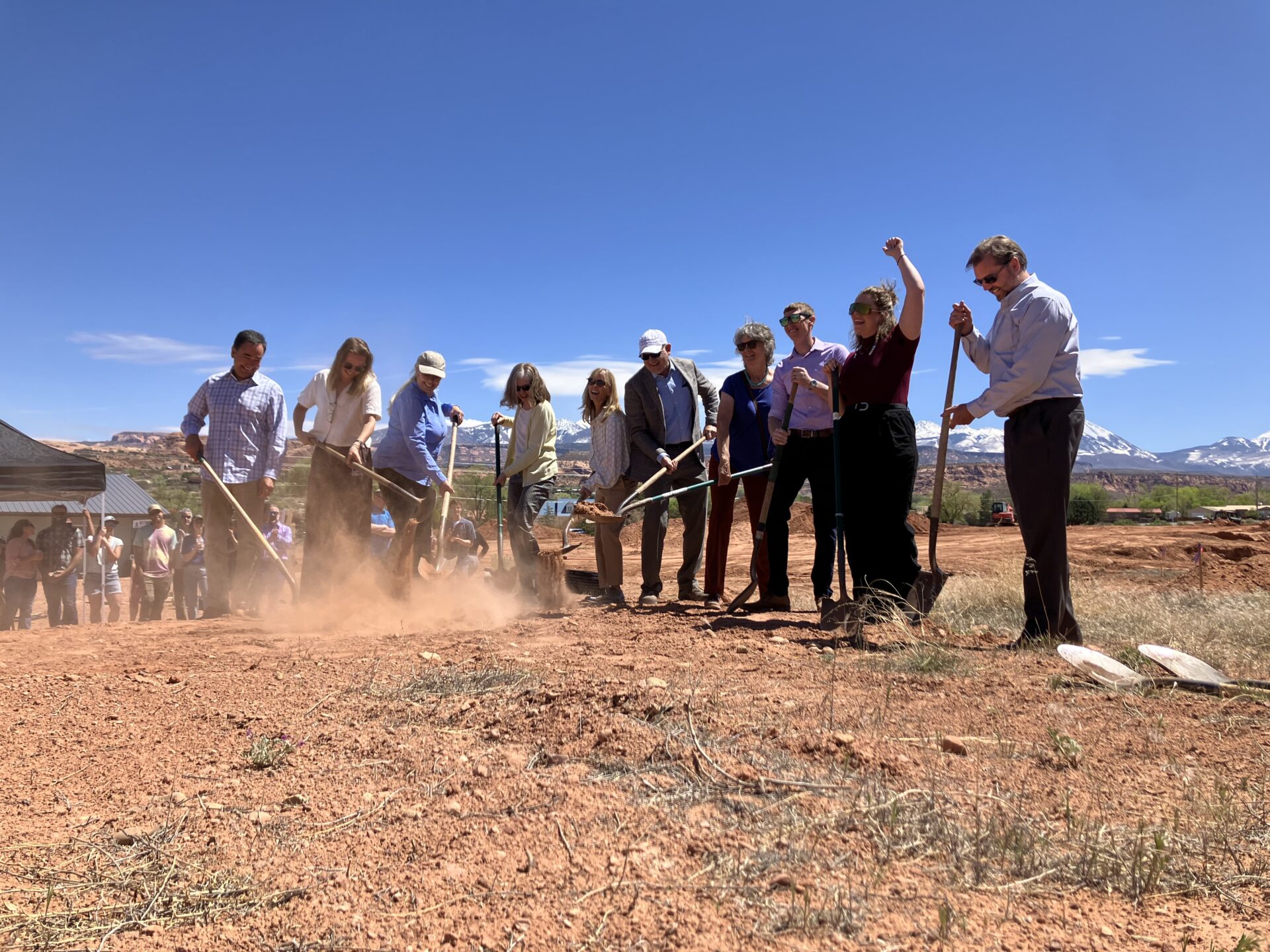The nonprofit Moab Solutions, founded by Sara Melnicoff, focuses on two main areas: recycling and homeless outreach. Just recently, the nonprofit brought on a new hire—Win Bludworth, the homeless outreach coordinator.
The Moab Sun News chatted with Bludworth about his job responsibilities and goals.
Moab Sun News: What are your day-to-day job responsibilities?
Bludworth: Pretty much what I do is I just go around to the different camps scattered around town, to the people who I know are homeless. I talk to them and see how they’re doing: See if they need anything like jackets, hats, socks, or food, and I bring some easily eatable items with me. I have a person I visited today who needs a jacket and a hat, so I’m going to get that for him.
It’s all street-level outreach: I’m being their friend. I initially got into this work when a homeless person asked me for some change because he said he wanted a coffee. So I gave him the change, and he said, ‘do you want to go with me?’ I went with him—he ordered a coffee, I ordered water. Then he handed me the coffee, and said, ‘I just wanted someone to hang out with and talk to.’
MSN: How do you structure your week?
Bludworth: I do what I call a walkabout every day—I go down some of the different trails or to other areas where I know some of the people who are homeless live, which usually takes about half an hour, but usually I’ll see someone and I’ll stop and talk to them.
They know my name, I know their name. Usually, we’re happy to see each other. In my Jeep, I have blankets, jackets, beanies, socks, food. I’ll ask if they need anything and see if I can help them with that, or I’ll point them toward different resources in town.
And every Thursday, I’ll go to the lunch provided at the church soup kitchen to sit down and eat lunch with people.
MSN: What do you think is the importance of having a position like yours—a homeless outreach coordinator—in Moab specifically?
Bludworth: Originally, I think the job was just to be friends with people who are homeless—to be there for them, to buy them a meal or something.
But [we have to do more than that in Moab, since] things are really tough here with the housing situation: people come to Moab and they get stuck. We’ve already helped two people reunite with their families.
Ultimately, the importance is to let people know they’re real and they’re human, just like everybody else.
MSN: What does your work with other organizations in town look like?
Bludworth: We work with each other through assists: we point people to the Moab Valley Multicultural Center, Four Corners Behavioral Health, and the Recovery Center at the Moab Regional Hospital.
Mostly, we ask a homeless person what they need and how they’re doing, and then we can point them in the right direction. Sometimes, we can help them ourselves; sometimes, they just need a ride, like in the case of one of the people reunited with his family. We gave him a ride to the train station.
MSN: How personal is your work?
Bludworth: I’ll give people rides in my vehicle. When someone is homeless—when they talk to the police, or when they’re referred somewhere like a health clinic—they can be guarded about their lives, like where they live or what they do. So when they’re asked a bunch of personal questions, like their social and family life, I think they can feel very overwhelmed. It’s almost like we’re asking them to be interrogated.
But if you go into their world and hang out for a while, your relationship is a lot different.
MSN: Do you have overarching goals in your position?
Bludworth: So, there’s an animal nonprofit called “Best Friends,” with a goal to end all homelessness with cats and dogs. But that’s kind of unreachable—it’s a cool goal, but I don’t think it’ll ever happen. I want to work with people where they’re at: some people don’t want to be on the streets, but some people are okay.
I want to help people be happier and healthier, and I help people who really need it, like people who need to be reunited with family.
MSN: Is there anything else you want to add?
Bludworth: Another important aspect of my position is camp cleanups. Old camps can be dangerous. There could be drug paraphernalia or debris like old steel or kitchen knives. It’s just bad for the environment, so we clean up a lot of old camps, too.
Moab Solutions is running its 11th annual Emergency Needs fundraiser: every cent donated directly alleviates costs such as rent, emergency lodging, utilities, food, medications, and transportation to those in need. You can find the donation booth in front of City Market every day until Christmas Eve (except Sundays) or go online at www.moab-solutions.org.




